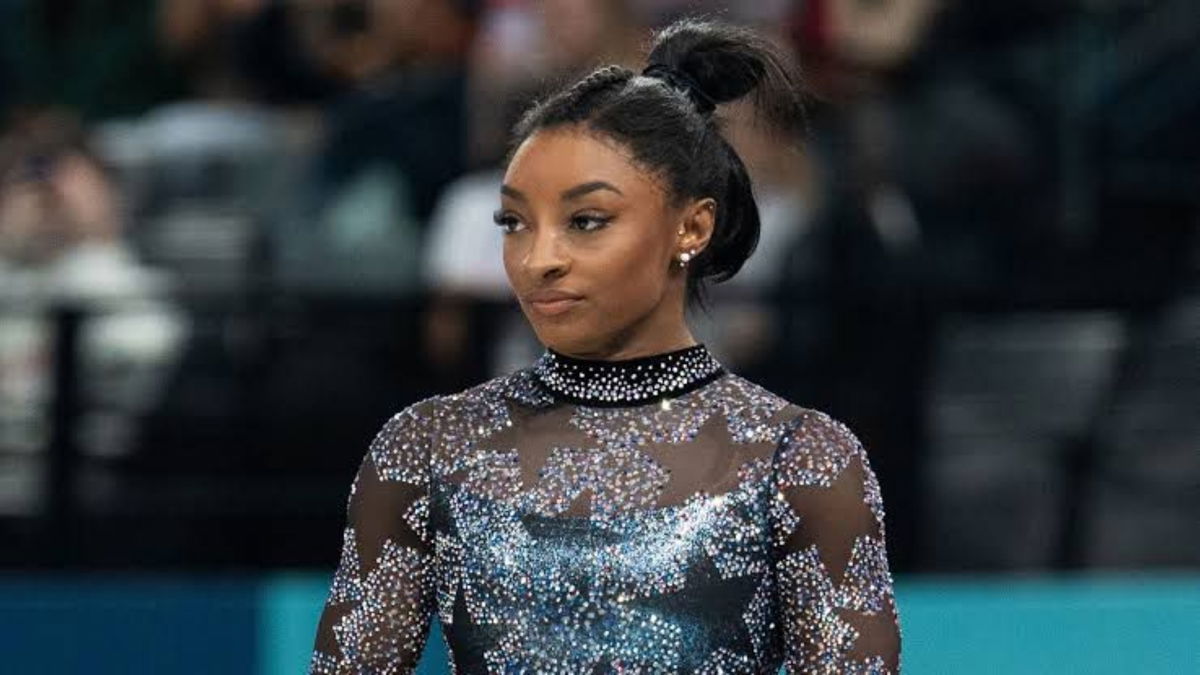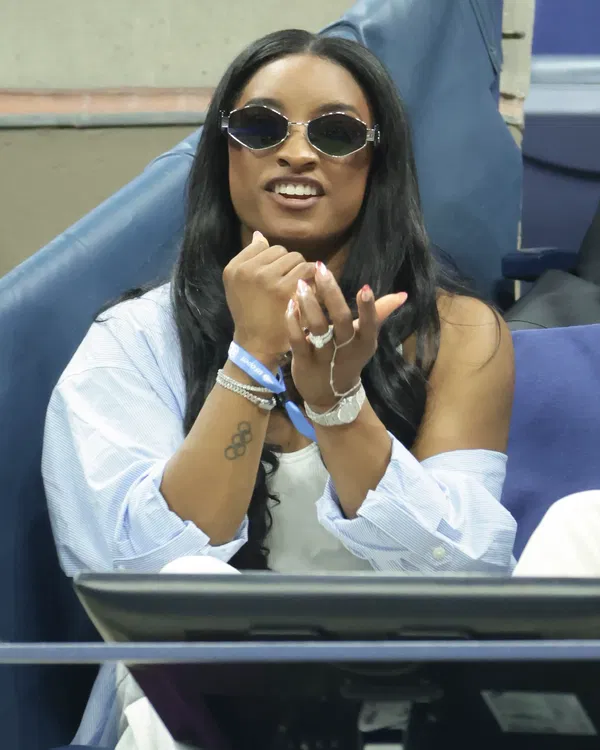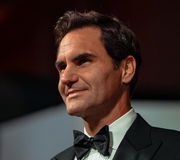

Simone Biles once said, “Everyone’s mental journey is different and unique,” and her own experience really brought that idea to life. During the 2020 Tokyo Olympics, she made a decision to open up about her struggles with “the twisties,” admitting, “I feel like my body is slowly starting to shut down, like it’s ready to be done.” This candid moment was a game changer, sparking important conversations about mental health in sports.
Watch What’s Trending Now!
In the end, she made the tough choice to withdraw from the Tokyo Games because of the twisties. At that time, though, it was hard to see just how significant her decision would be in raising awareness and understanding around mental health challenges faced by athletes. Let’s rewind to 2019. A staggering 970 million individuals worldwide were coping with a health condition at that time; that equates to 1 in every 8 people globally.
Today, as we look ahead to the present-day scenario revealed by the National Institutes of Health (NIH), it is evident that 57.8 million adults in the United States are facing health issues and challenges. Simultaneously with this revelation is the bravery displayed by Biles in opening up about her battles with mental health issues. As a result of Biles’s courageous transparency and openness about her struggles with mental health challenges, more athletes are finding their voice and sharing their experiences in this space. This shift towards athletes speaking out is fostering an environment surrounding mental health concerns within the sports community.
ADVERTISEMENT

ADVERTISEMENT
Simone Biles has echoed this sentiment, saying, “I wish I knew pre-Tokyo that everybody’s mental health journey is different; yours may not look like your friends’ or your spouse’s or whatever.” So that people would have been more open to this before the Tokyo Olympics.
By being open, Biles has inspired others to do the same, breaking down the stigma that often surrounds mental health in sports. Her bravery not only raises awareness but also saves lives by encouraging athletes to prioritize their mental well-being.
ADVERTISEMENT
A shining example of this impact is fellow Olympic gold medalist Jade Carey. In a recent interview with Olympics.com, Carey shared, “I think after Tokyo and Simone using her voice about mental health and how we need to take care of ourselves, it really made us all kind of take a step back and realize that we’re not just robots out there in gymnastics. We have minds that we have to take care of as well.”
The Arizona native, Carey, continued, “She not only inspired me, but I know she inspired so many others just to seek help and talk to someone, because it’s not easy to do on your own.” Biles’s influence is evident in how she has prompted a broader conversation about mental health, encouraging athletes to acknowledge their struggles and seek support.
ADVERTISEMENT

Well, Jade Carey took home her first gold medal in 2021 after a floor routine in Tokyo. However, her confidence faced a significant challenge during the 2023 season when a series of competition losses shook her self-esteem. Reflecting on that tough period, she said, “I didn’t really have the best year. I wasn’t feeling myself. I fell a bunch of times in championships, and I got left off the World [Championship] team. That was just really hard for me to deal with mentally, because I’ve never really had a year like that in gymnastics before.” To help regain her footing, Jade began speaking with a sports psychiatrist, courtesy of the United States Olympic & Paralympic Committee (USOPC). It was at that moment that everything changed for the 24-year-old athlete.
ADVERTISEMENT
“I didn’t really put a whole lot of pressure on the situation,” Jade explained. She just made me feel more confident in myself and my abilities.” Jade acknowledged that she used to “feel bad” if she was having an off day at the gym, often avoiding telling her father or coaches because she “felt like I was just taking the easy way out.” But it was not just Jade; Simone Biles also helped Suni Lee when she needed it the most.
From pressure to purpose is the transformative power of Simone Biles’s advocacy
When Suni Lee faced a panic attack just hours before the team’s all-around final at the 2024 Paris Olympics, Simone Biles was there to provide vital support for her mental health. Lee, 21, admitted to having a “ritual” cry the night before competitions, but on this occasion, her teammate Jordan Chiles sensed Lee’s distress and immediately sought out Biles.
ADVERTISEMENT
“She was like, ‘I’m gonna go get Simone,” Lee said. Biles, who had been asleep, offered sage advice that helped ground Lee: “You need to walk around like you’re the reigning Olympic champion, and you need to own it. You need to remind yourself that you’re good enough, and you are on this team for a reason.” This pep talk empowered Lee, who went on to win gold with her teammates later that day.
The journey to the 2024 Olympics had been a challenging one for Lee, particularly in terms of her mental health. Following her success at the Tokyo 2021 Olympics, where she won gold in the all-around and silver as part of the team, she struggled with feelings of inadequacy and faced the additional challenge of two undisclosed types of kidney disease.
Top Stories
Sean Payton Announces Retirement Plans as Broncos HC Demands Improvement From Bo Nix & Co. Before Playoffs

Greg Biffle’s $4M Worth Prized Possession Still Without a Buyer Leaves NASCAR Fans Heartbroken

LIV Golf Braces for Another Possible Exit in Wake of Brooks Koepka Departure

Biff Poggi All But Confirms Bryce Underwood’s Michigan Future After Announcing His Own Departure

Roger Federer Draws Criticism from Swiss Government Chief for Tourism Boom in Country

NASCAR World Mourns as Former Watkins Glen President Michael Printup Passes Away at 60

ADVERTISEMENT

Lee experienced a health setback just before the Olympic trials but ultimately secured her place on Team USA after receiving a crucial infusion. Reflecting on her experiences, she stated, “I’m at such a better place in my life,” both physically and mentally, emphasizing the importance of addressing mental health. Biles’s support not only helped Lee navigate a difficult moment but also highlighted the critical role of mental well-being and camaraderie in the world of gymnastics.
ADVERTISEMENT
Simone Biles’s decision to openly discuss health has deeply resonated with athletes, which encouraged them to speak up about their own struggles. Canadian gymnast Ellie Black put it well when she said, “Having Simone come forward and use her platform in Tokyo was really powerful. As athletes, we’re often seen as machines, expected to handle everything without showing vulnerability. We work really hard, but we are humans, and we need to take care of ourselves first and foremost.” This shift is bringing mental health to the forefront of the conversation in sports, and it’s great to see.
Jordan Chiles also mentioned her perspective on this change in thinking about the topic at hand. She confessed that in her youth she didn’t quite connect with the concept of sports psychology. “I did try a sports psychologist when I was younger, but since you have that young mindset, you’re like, ‘No, I can do everything on my own. I’m fine,’” she recalled. Now, she encourages others to seek support: “Find somebody you can talk to…someone you can lean on.” Biles’ guidance and the discussions she has initiated have led athletes to realize the significance of well-being. This nurtured an environment where being open about vulnerabilities is not just welcomed but embraced.
ADVERTISEMENT
ADVERTISEMENT
ADVERTISEMENT

